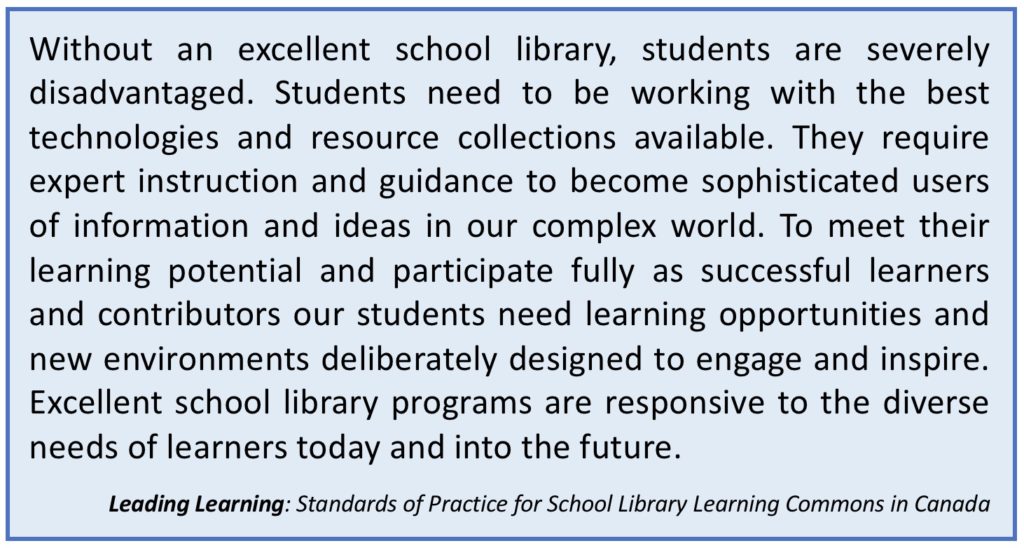Learning for the Future
Every child in Canada deserves an excellent school library. Here’s why.
“The school library – a centre piece in schools – is now the modern hub for learning.”
The Learning Commons Mindset, Culture of Yes, Chris Kennedy
Student Success and the School Library Learning Commons
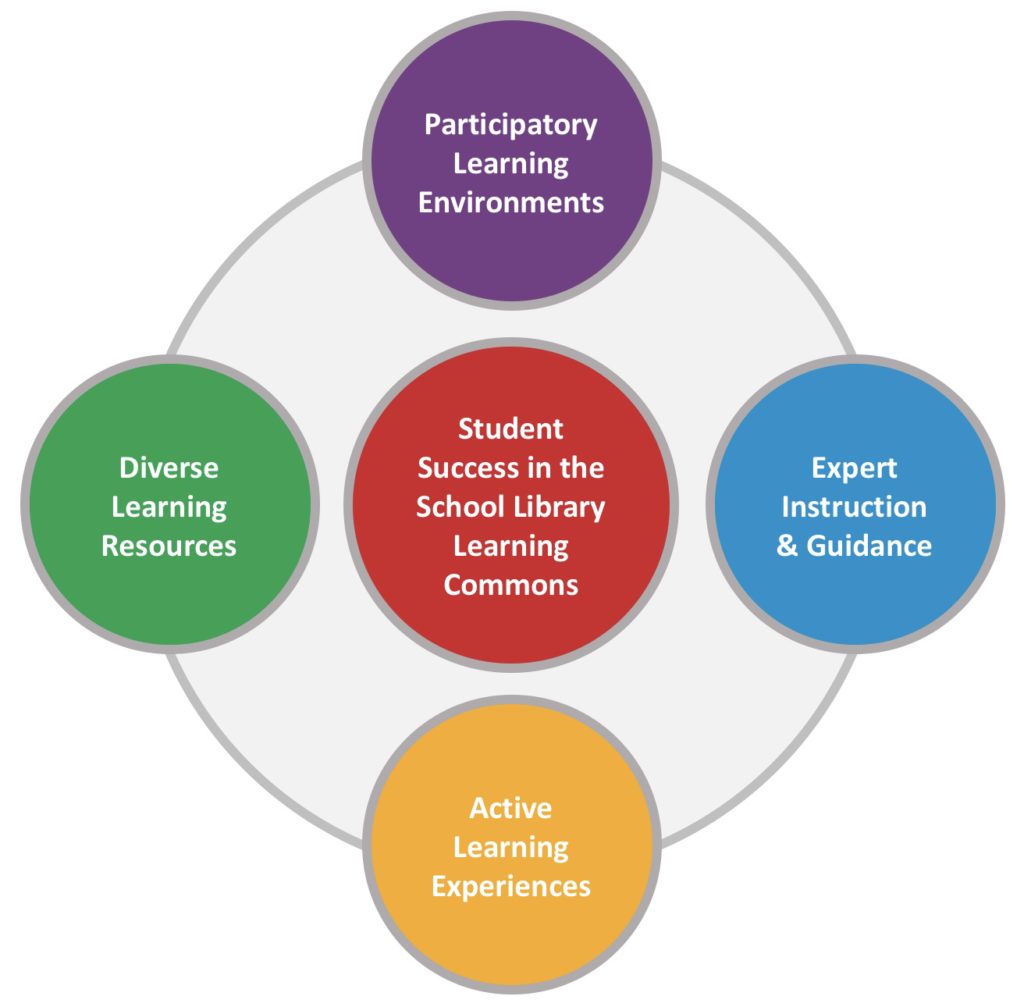
To be successful learners today and in the future all students need an excellent physical and virtual school library learning commons to ensure they have equitable access to:
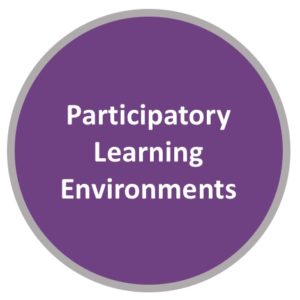 Participatory Learning Environments: Physical and virtual spaces designed to engage learners in interdisciplinary learning and collaborative knowledge building, and inspire experimentation, creativity, making and innovation. Entrepreneurial learning is the norm, and students learn through collaboration and authentic challenges.
Participatory Learning Environments: Physical and virtual spaces designed to engage learners in interdisciplinary learning and collaborative knowledge building, and inspire experimentation, creativity, making and innovation. Entrepreneurial learning is the norm, and students learn through collaboration and authentic challenges.
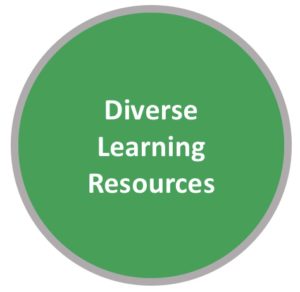 Diverse Learning Resources: A broad range of culturally responsive and relevant print, digital and human resource collections that are curated by library professionals to meet all student needs and abilities. Curiosity and learning are fueled by students’ freedom to choose from a rich and varied collection and to explore diverse ideas.
Diverse Learning Resources: A broad range of culturally responsive and relevant print, digital and human resource collections that are curated by library professionals to meet all student needs and abilities. Curiosity and learning are fueled by students’ freedom to choose from a rich and varied collection and to explore diverse ideas.
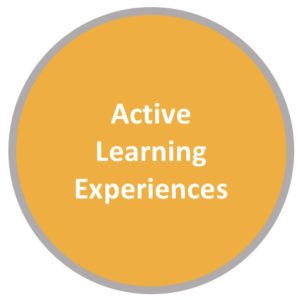 Active Learning Experiences: Designed to infuse inquiry learning approaches, evolving technologies and best resources as well as foster a love of reading and life-long learning. In the library learning commons everyone is a learner, and learning experiences empower intellectual, cultural and personal growth.
Active Learning Experiences: Designed to infuse inquiry learning approaches, evolving technologies and best resources as well as foster a love of reading and life-long learning. In the library learning commons everyone is a learner, and learning experiences empower intellectual, cultural and personal growth.
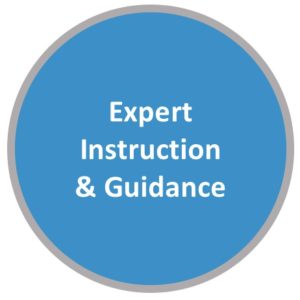 Expert Instruction and Guidance: Preparing students to become sophisticated users of information and ideas in our complex world as well as good digital citizens and contributors to building new knowledge. Students benefit from collaborative teaching that connects competencies for inquiry and critical thinking with content expectations across the curriculum.
Expert Instruction and Guidance: Preparing students to become sophisticated users of information and ideas in our complex world as well as good digital citizens and contributors to building new knowledge. Students benefit from collaborative teaching that connects competencies for inquiry and critical thinking with content expectations across the curriculum.
The Bottom Line: Without an excellent school library functioning as a learning commons, students are severely disadvantaged.
What the Research Says
“When provincial, national, or international learning assessments are analyzed, the areas of concern that emerge are frequently library-related, particularly in the realm of information literacy practices: formulating questions, identifying appropriate sources of information, locating information, distinguishing between relevant and irrelevant information.” (Oberg, 2012)
The Learning Commons in Action
Here’s How
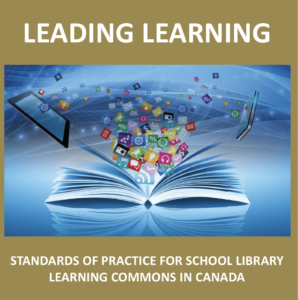
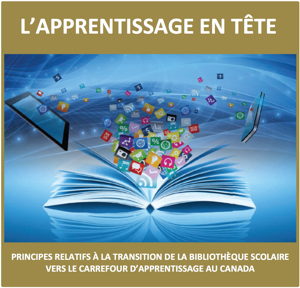 Leading Learning: Standards of Practice for School Library Learning Commons in Canada
Leading Learning: Standards of Practice for School Library Learning Commons in Canada
Download, print and share the PDF version of this page!

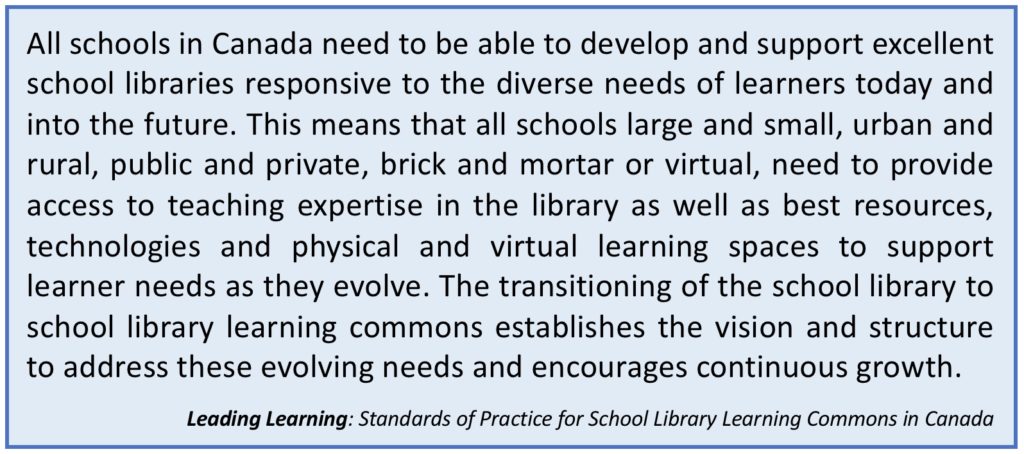
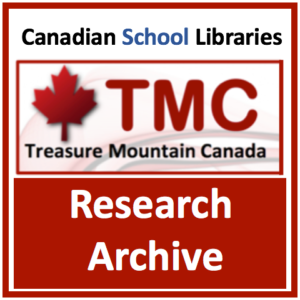 CSL Research Archive
CSL Research Archive